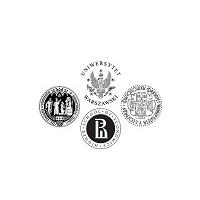Slavic Bilingualism
Join us in delving into a topic that has been fascinating researchers not only in the field of linguistics, but also in the fields of psychology, neurology, sociology and pedagogy. We can say that in today's global world there are few monolingual communities. The number of those who speak multiple languages is growing, due to their interest in foreign languages or their family and social background.
Apart from the theoretical part of bilingualism (or plurilingualism), in the seminars, we will deal with situations in which active bilingualism occurs, because the members of one family speak two languages. We will also deal with cases of bilingualism, in which bilingualism is caused by the environment, and with the question how majority and minority languages in a certain area area influence the mother tongue. Our main interest will be bilingualism between Slavic languages, but we will also look at bilingualism between Slavic and non-Slavic languages.
The course will be taught by Dr Samuel Koruniak in the summer semester 2021.
